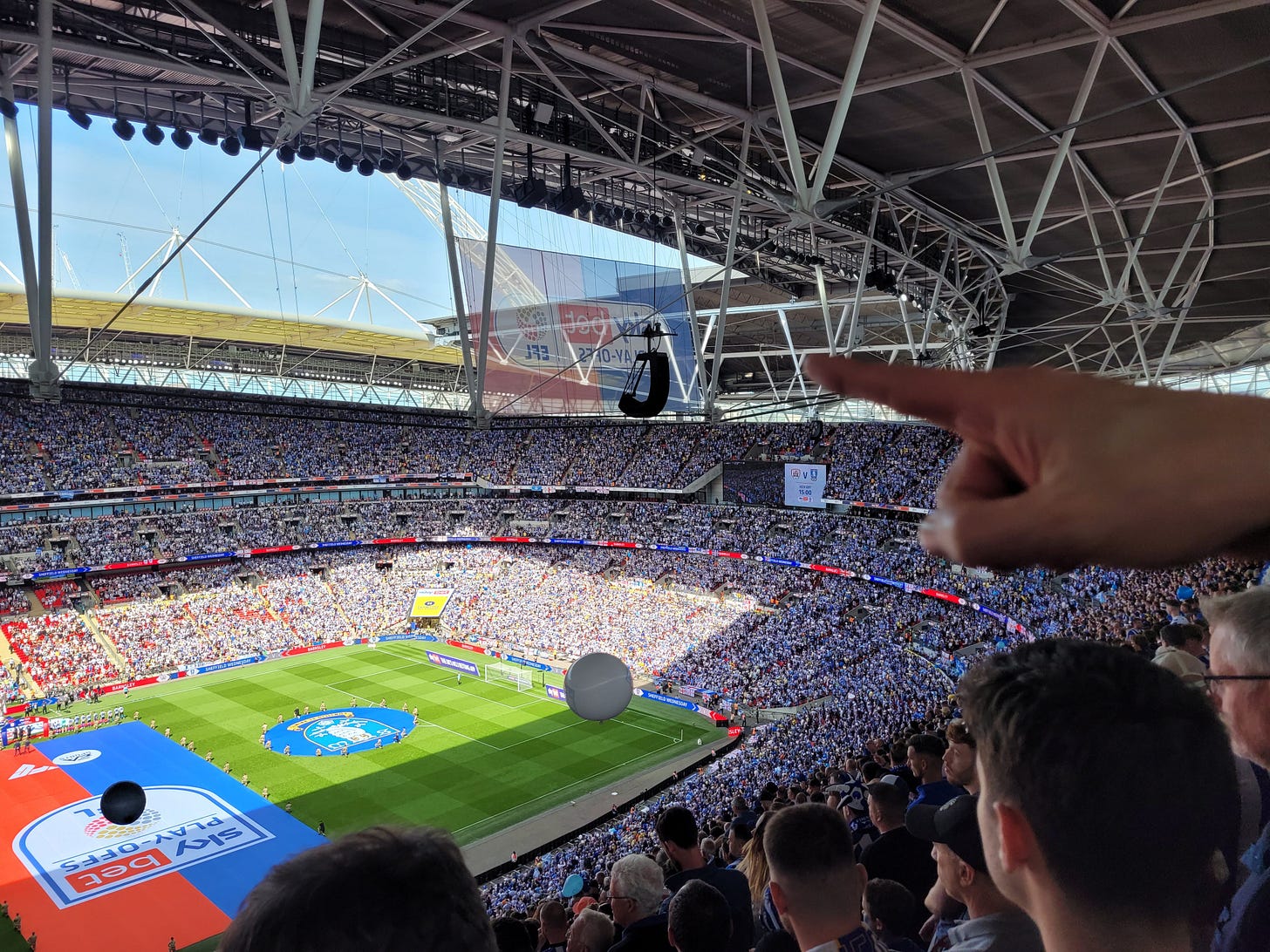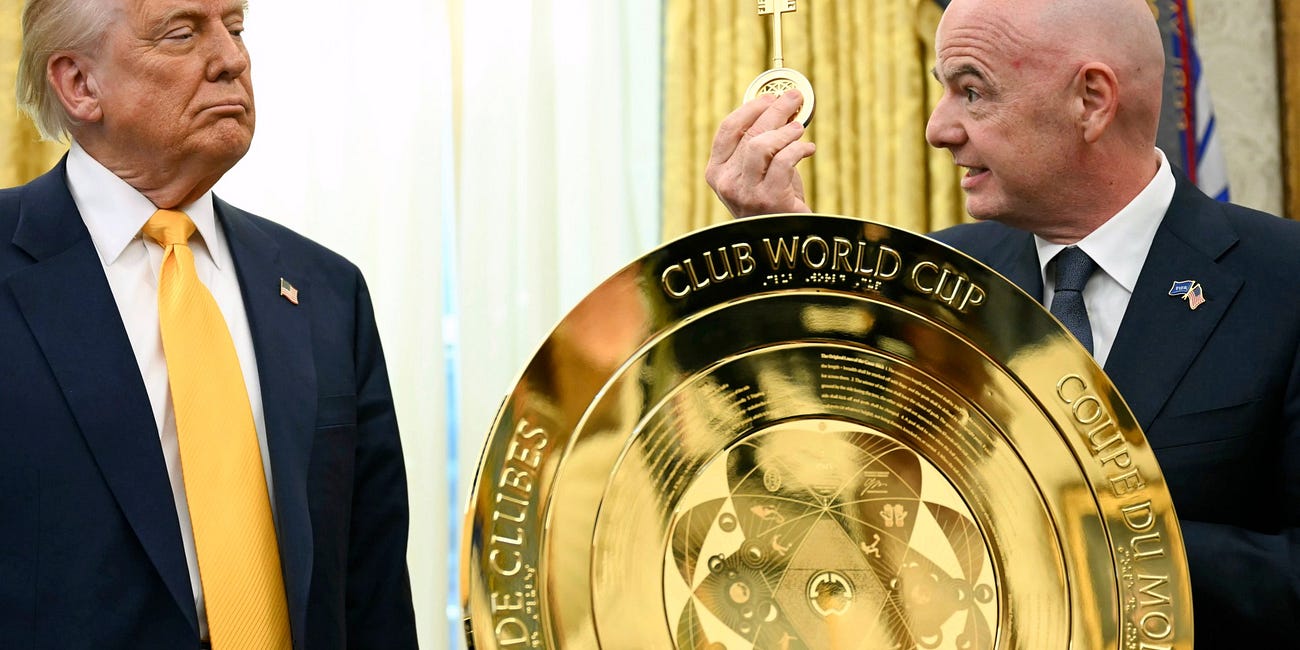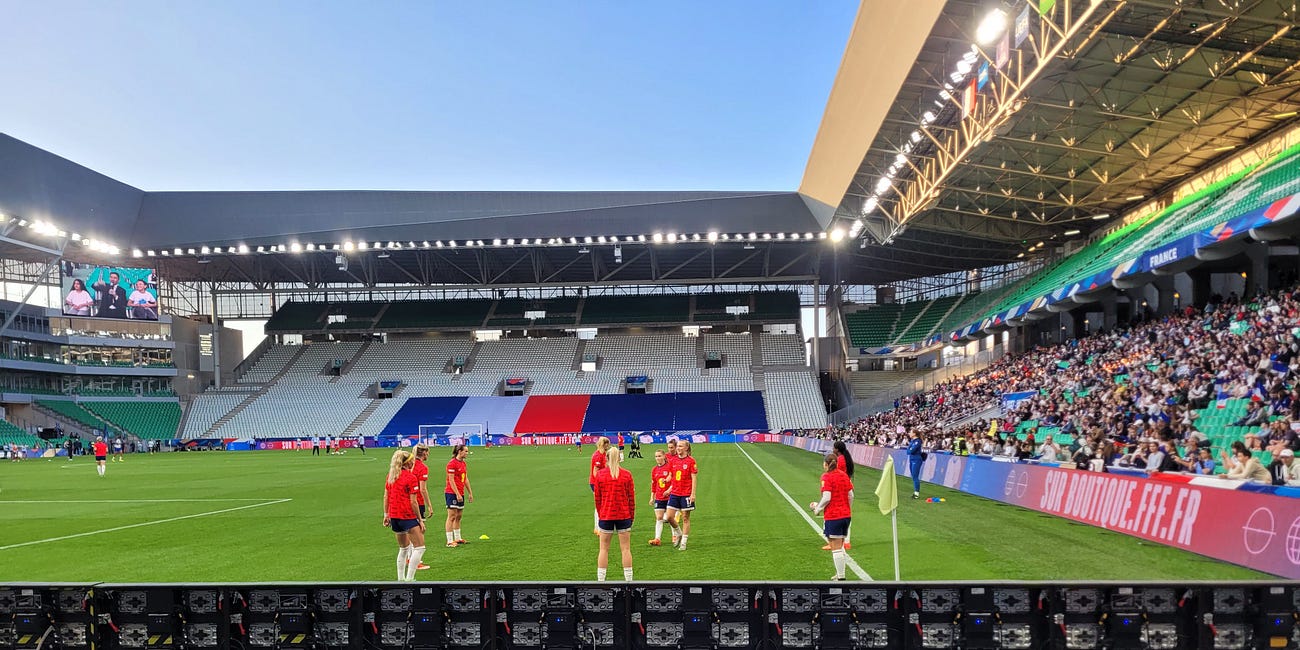Protecting Football
With historic football clubs on the brink of collapse it's time a real conversation is had on the state of sports club ownership in this country.
Introduction: A game in crisis
In light of situations at Reading, Bury and now Sheffield Wednesday (other clubs on the brink of financial ruin are available), I thought it the perfect time to reflect on the state of football in this country and to offer some concrete solutions to the perilous situation we find ourselves in.
While I would hesitate to call myself a ‘wednesdayite’ (in part because I struggle to spell it), I do frequent Hillsborough a couple of times a season, and have family members who support the Owls. I attended the league one play off final a few years back with my brother and father - a memory which I cherish for lots of reasons - and often go to games around Christmas and New year's, so I would perhaps go as far as to say that I am a follower, if not a lifelong, diehard fan. The decline of Sheffield Wednesday over several seasons is troubling on many levels, and has made me reflect on the model of football club ownership, as well as the severe lack of checks and balances that exist to protect the wonderful institutions that are football clubs. I'll admit that it is perhaps selfish and self-centred that it has taken ‘my’ football club being run into the ground for me to truly empathise and reflect on where the current structures are failing us, but this is of course only natural. I'll take that criticism on the chin…
Sheffield Wednesday: A case study
As I am most informed about SWFC, and less knowledgeable about Reading and Bury (though I promise I've done some research), I will describe in the most detail possible the situation there, before giving brief synopses about the other two…
Sheffield Wednesday are 100% owned by a consortium headed by Dejphon Chansiri, a Thai businessman who is a member of the Chansiri family. The family control Thai Union group, the world's largest producer of canned Tuna, and were estimated in 2020 to be worth $575m. D Chansiri bought the club and became chairman in 2015, and has remained at the helm of Sheff Wed ever since. The Owls went on a promotion push soon after his acquisition of the club, but were the relegated to league one in 2021 after having been deducted 12 (later changed to 6) points at the start of the season after breaking the FA’s profit and sustainability rules. The club broke these rules after Chansiri basically sold the stadium to himself and fiddled with the numbers a bit, after finding himself a fair way off from being in the green (about 35 million pounds away…) More recently, in March of this year the club failed to pay the players’ wages on time. The situation worsened when in May the club failed to pay non-playing staff their wages on time, in what is a clear and far more distressing escalation. The owner has been approached at least twice in recent months by interested parties looking to purchase the club, but he has reiterated that the club is not for sale, despite evident and significant financial issues. The club have now been placed under what is effectively a three window transfer ban, meaning they will be unable to sign players until January 2027.
Reading were similarly subjected to points deductions, relegations and transfer embargoes before the EFL forced the former owners to sell the club in may of this year. Bury on the other hand were expelled from the football league in 2019 on the grounds of financial issues due to their ownership. These three examples, by no means an exhaustive list, illustrate how the current ownership model, along with the FA’s convoluted system of regulations and punishments results in careless and unfit owners being supported and fans being penalized, when it should be the other way round!
Potential Solutions
Let's clarify what the issue is. Unfit owners are buying controlling stakes in football clubs. There is very little protection for the clubs, meaning that once the club has been bought, there is very little the fans / league / whoever else can do with regards to supporting and/or saving the club. While a german style 50+1 system is the holy grail for a lot of football fans, it is 1. impossible to implement in a world where sovereign states already own a number of clubs and 2. imperfect. One need only look at the domination of Bayern to see some of the unintended and more unsavory aspects of fan ownership. While I am partial to a bit of fan ownership (probably because im woke), I will not be exploring it in this article, as I want to look at real, plausible and actionable solutions to the current problem rather than pining for a utopic vision of football.
The Football Governance Bill, which is currently making its way through parliament, will hopefully go some way to resolving the problem at hand. The bill will establish an Independent Football Regulator (IFR), whose three primary objectives are as follows…
The ‘Fact Sheet’ page for the bill also lays out how it will operate and what its powers will be (it is a decent read if you’re interested in boring bureaucratic jargon). Less relevant to this piece, but still hugely important to the protection of football is all the stuff in this bill about stopping breakaway leagues and making sure that fans are consulted on stadium changes. Let me just highlight a couple of powers that this regulator will have which could prevent future Wednesday / Reading / Bury situations.
‘Statutory, strengthened owners’ and directors’ tests to make sure a club’s custodians are suitable and protect fans from irresponsible owners.’ This will consist of checking they’ve got cash, how they plan to spend that cash, and how they’ve spent their cash in the past. An owners test already exists, but this proposed one is far more robust (I won’t go into details as it’s really boring, but if you want specifics on how the tests differ you can find information linked at the bottom of this post). This test will be applied to all new owners AND the regulator will have the power to re-test current owners and subsequently remove them where they see fit (bye bye Chansiri…)
‘Enhanced financial regulation to improve the financial resilience of clubs across the football pyramid, ensuring that clubs take sensible financial decisions and risks are mitigated so they do not jeopardise the club’s future.’ This will mean that while financial regulation will perhaps become more strict, the regulator will be less black and white with punishment, should the penalty put the club at risk of going under and / or harm the club long term. This, coupled with the fact that they can remove owners will put real pressure (something which up till now has not existed) on owners to act responsibly.
I genuinely recommend giving the fact sheet a read, as it summarizes well the powers and objectives of this new regulatory body. The measures it suggests are reassuring, albeit fairly vague - it is clear that the details still need to be ironed out, but on the face of it, it looks positive.
Put the Fans at the forefront
What else can we do? I think that patience is needed. If this bill does everything it says on the tin then I will have very few notes. In theory, owners like Chansiri will be ‘removed’, and the regulator would have stepped in to save Bury before it was too late. It’s as much about prevention as it is about protection - but it is reassuring to hear that, if worst comes to worst, the regulator would step in.
Fan input is maybe the only other thing that I would hope to see in a bill like this. The bill currently only has a vague suggestion that ‘clubs (will be required) to have an effective framework in place to regularly meet a representative group of fans to discuss key strategic matters at the club, and other issues of interest to supporters, including club heritage and ticket prices.’ This is great in theory, but SWFC have a fan forum on a regular basis which tends to involve fans voicing their concerns and Chansiri telling them all that they’re ungrateful and that he plans to ignore virtually everything brought to his attention. I’m unsure what the solution is for this problem (collective/fan ownership - seize the means of production ☭!), but I think that fan involvement in decision making, or at least increased transparency (which to its credit this bill does mention extensively), is one of the keys to protecting football.
Football is far more than a sport; clubs are cultural institutions woven into the lives of generations. I look back so fondly on the league one play off final 2023, when Josh Windass scored in the 120+3rd minute to win the game, sending me, my father, my brother - and 44,000 others - into a state of jubilant hysteria. I was quite drunk by that point, but I will forever cherish the tears, hugs and laughter we three shared in that moment. The implementation of a regulator, and the removal of parasitic/careless/repulsive (insert your own adjective) owners, will go some way to preventing clubs, which represent so much to so many people, from being mismanaged, and will therefore go some of the way to protecting football.
This piece is part of a series I have written on the value of football. Find links to the other articles in the series below…
Sources:
Sheffield Wednesday situation:
https://www.theguardian.com/football/2025/jun/18/sheffield-wednesday-ban-transfer-spending-january-2027-championship-players-wages
https://www.theguardian.com/football/2019/nov/14/sheffield-wednesday-charged-efl-misconduct-hillsborough-sale-spending-rules
https://www.efl.com/news/2025/june/18/efl-statement--sheffield-wednesday/
Football Governance Bill Fact Sheet : https://www.gov.uk/government/publications/football-governance-bill-2024-supporting-documents/fact-sheet-the-independent-football-regulator-ifr
Football Governance Bill:
https://publications.parliament.uk/pa/bills/cbill/59-01/0213/240213.pdf
Current EFL owners eligibility test: https://www.efl.com/governance/acquisition-of-control-the-owners-directors-test/








